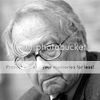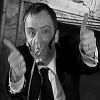- 14 Feb 2010 02:27
#13319821
It was the Foot Guards but they were assisted by other units. The main reasons for the defeat of the Old guard lie in supporting units from two other corps became concerned with the Prussian arrival and didn't advance, and the intrinsic nature of the column. A column attacks with around 70 men broad but very deep, and a line may be around 400 men broad but very shallow, so it was outgunned as it approached and until it punched a gap in the line. This was compensated for by the French habit of concentrating artillery at the vital point and blowing a hole in the line for the columns to crash through. Wellington nullified this by keeping his troops on the reverse slope and also by the quality and steadfastness of his troops.
In a loose way the columns could be compared to the German Blitzkrieg in that it was almost unstoppable at the beginning but its effect became less, and the casualties it took became heavier as other generals learnt from their earlier mistakes and the shock value of it wore off.
Ney was an interesting one. As brave as they come and a great leader from the front but wholly unsuited to high command.
Oh, and I thought that it was Napoleons haemorrhoids that were playing up that day but it would be a bit hard to verify that.
Confused about what to follow? Try Nazbols. When just one ideology isn't quite enough.
























 - By Tainari88
- By Tainari88 - By Rancid
- By Rancid - By Rich
- By Rich